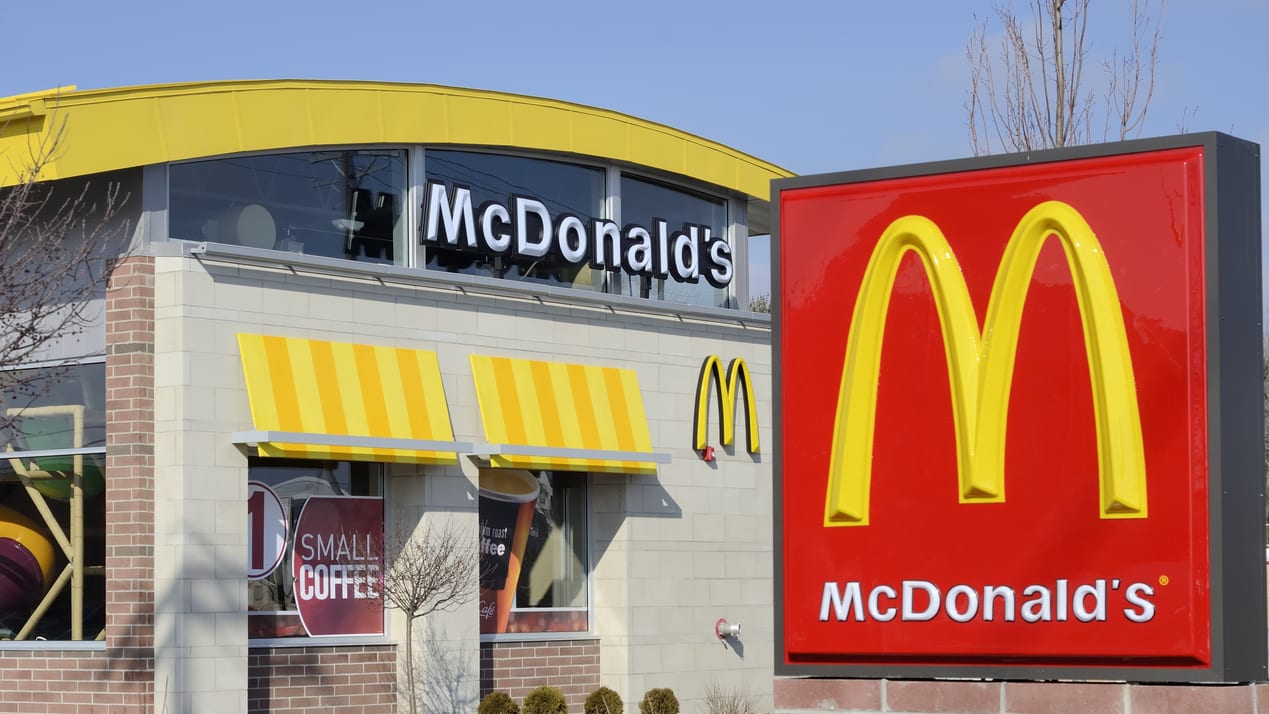In March 2021, the U.S. Equal Employment Opportunity Commission (EEOC) sued a New England-area McDonald's franchisee for failing to protect workers from a manager who sexually harassed them over several years at a Randolph, Vt., location.
The company must now pay $1.6 million in damages.
"Combating workplace harassment and retaliation is a top priority for the EEOC," Charlotte A. Burrows, EEOC chair, said in a statement. "The agency will continue to vigorously enforce [Title VII of the Civil Rights Act of 1964], particularly in cases involving teenage workers who may be more vulnerable to being taken advantage of by co-workers or their superiors."
Coughlin, Inc., a Vermont-based company that owns and operates 10 McDonald's franchise restaurants in Vermont and New Hampshire, was accused of creating a sexually hostile workplace environment against its workers, mostly teenagers.
The EEOC lawsuit alleged that a male night shift manager touched employees inappropriately; hit and groped their genitals, breasts and buttocks; and subjected them to derogatory comments and threats of physical harm. It also charged that the company retaliated against at least one employee by revoking her disability-related reasonable accommodation and forcing her to quit after she complained.
"Protecting vulnerable workers in the fast-food industry is a strategic enforcement priority for our district," Jeffrey Burstein, regional attorney for the EEOC's New York District, said in a statement. "The EEOC is committed to vigorously enforcing anti-discrimination laws on behalf of all restaurant industry workers."
The settlement requires that Coughlin, Inc. reform its business practices to prevent further discrimination. These provisions include:
- Implementing extensive anti-discrimination and harassment training, including interactive training for the company's managers and human resource personnel.
- Revising company equal employment opportunity policies and procedures for investigating sexual harassment complaints.
- Hiring an independent monitor to oversee Coughlin's compliance with the decree.
- Mandating the company to report all complaints of sex discrimination and/or retaliation to the EEOC.
Coughlin will also establish a settlement fund of $1.2 million for the victims of the harassment and pay $125,000 in civil penalties and legal fees to the state of Vermont. The estate of one victim will receive a separate $275,000.
The company also agreed to prohibit the since-fired manager who participated in the harassment from entering its premises.
McDonald's and Franchises' Recent History of Alleged Misconduct
In the last few years, McDonald's Corp. has received numerous accusations of wrongdoing:
- In 2021, a former worker at a St. Louis-based McDonald's sued the company and franchise operator, alleging that she was forced to quit after a few weeks on the job due to severe sexual harassment. The parties agreed to end the lawsuit in October 2021.
- In December 2021, the company settled a lawsuit with Herb Washington, a Black franchisee who accused the company of racial discrimination.
- In April 2022, former McDonald's workers agreed to a $1.5 million settlement with the former owner of a Michigan restaurant where a group of women and girls alleged the general manager ignored sexual harassment that included groping, physical assault and verbal epithets.
After several McDonald's employees nationwide told CBS News about their experiences enduring sexual harassment at work, the company implemented new brand standards to foster safe, respectful and inclusive workplaces. The standards prioritize actions in four areas:
- Harassment, discrimination and retaliation prevention.
- Workplace violence prevention.
- Restaurant employee feedback.
- Health and safety.
"As employers, we have an important role to play in setting the bar high for a values-led, safe and inclusive working environment," Mark Salebra, chairman of the U.S. National Franchisee Leadership Alliance and McDonald's franchise owner, said in a press release. "Our franchise community is committed to adhering to the standards and model what it means to support our employees in doing what we do best—serving our customers and communities with integrity and respect."
'Don't Assume This Will Never Happen to You'
Joseph Harris, a partner at A.Y. Strauss in Roseland, N.J., and chair of the firm's labor and employment practice group, opined that Coughlin, Inc.'s biggest mistake was not conducting an internal investigation the first time the allegations were reported.
"That investigation should have been launched immediately, within 24 hours of the complaint," Harris said. "With each passing day, an employer's risk of legal jeopardy may increase."
He offered tips for companies accused of sexual misconduct, including:
- If an employee makes an internal complaint about sexual harassment, take it seriously.
- Conduct a prompt, thorough and impartial internal investigation, using a professional with training in workplace investigations.
- Consider placing the accused individual on a leave of absence, pending the outcome of the investigation, to ensure that no one else is victimized while the investigation is being conducted.
- Regularly conduct sexual harassment prevention training for employees, managers and supervisors. That training should include information about bystander intervention.
- Never retaliate against an employee who reported sexual harassment. Employers that do so risk legal repercussions, even if it later turns out that the employee's complaint did not rise to the level of legally actionable harassment.
He added that employers should review their sexual harassment prevention policies, internal reporting protocols, and employee and supervisor training programs for legal compliance and best practices.
"Don't assume this will never happen to you," Harris said. "No matter how well you treat your employees, no matter how much you train your supervisors, and no matter how much thought you put into your internal policies and procedures, if you are in business for long enough, sooner or later an employee will make an internal complaint about sexual harassment."
Advertisement
An organization run by AI is not a futuristic concept. Such technology is already a part of many workplaces and will continue to shape the labor market and HR. Here's how employers and employees can successfully manage generative AI and other AI-powered systems.
Advertisement



